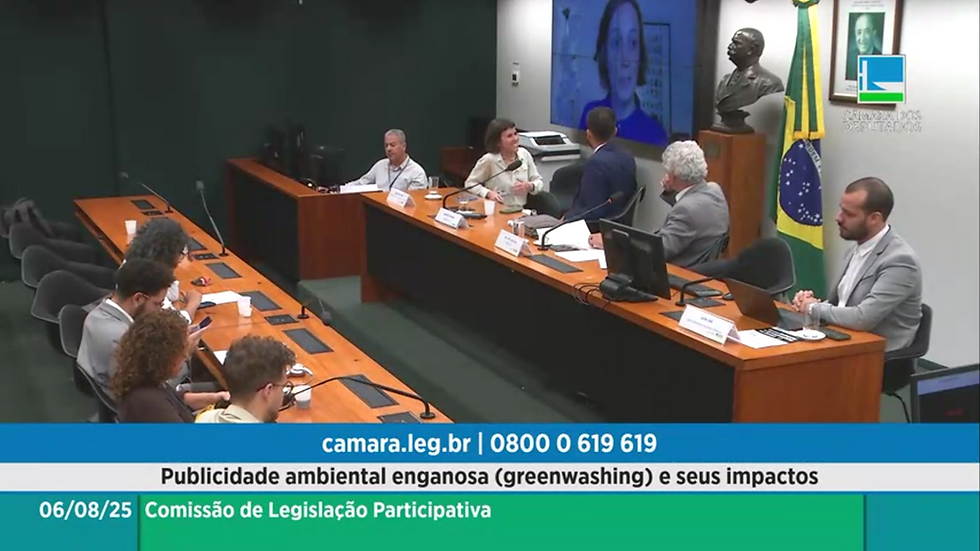NetLab UFRJ study on ‘bots’ is presented at the launch symposium for IRIE Journal - Vol. 30
- Bernardo Laranja
- Sep 23, 2021
- 1 min read
Updated: Jan 7, 2024

Carlos Eduardo Barros, project coordinator at NetLab UFRJ, spoke about automated manipulation in the virtual space | Photo: Reproduction - YouTube
This Wednesday (22/09), the Latin America and Caribbean Chapter of the International Center for Information Ethics (ICIE) held the symposium to launch volume 30 of the International Review of Information Ethics (IRIE), ICIE's official academic publication.
The event was developed jointly by the Federal University of Rio de Janeiro (UFRJ) and the Brazilian Institute of Information in Science and Technology (IBICT). Carlos Eduardo Barros, the project coordinator of the Internet and Social Network Studies Laboratory (NetLab) from UFRJ, participated in the event.
In his presentation, he addressed the risks, challenges and impacts of automated profiles on information flows, presenting the article “Bots as online impersonators: automated manipulators and their different roles on social media”. In addition to Barros, Marie Santini, Débora Gomes Salles, Charbelly Estrella Estrella and Daniela Orofino co-authored the article.
In this edition, the event presented the dossier “The ecology of literacy diversity in the new regimes of information”, organized by Arthur Coelho Bezerra (IBICT), Gustavo Silva Saldanha (IBICT - Unirio) and Miguel Ángel Pérez Álvarez (Universidad Nacional Autónoma de México ).
The symposium welcomed academics and experts from different countries, who debated topics such as infodemic, disinformation, information regimes, among others. The researchers Felipe C. O. de Mello (UFRJ), Carlos Alberto Ávila Araújo (UFMG), Henriette Ferreira Gomes (UFBA) and Juliano Borges (IBMEC) took part at the roundtable with NetLab.
The event was open to the public and broadcast live on the research group’s YouTube channel ‘Critical Studies in Information, Technology and Social Organization’ (Escritos - IBICT).


